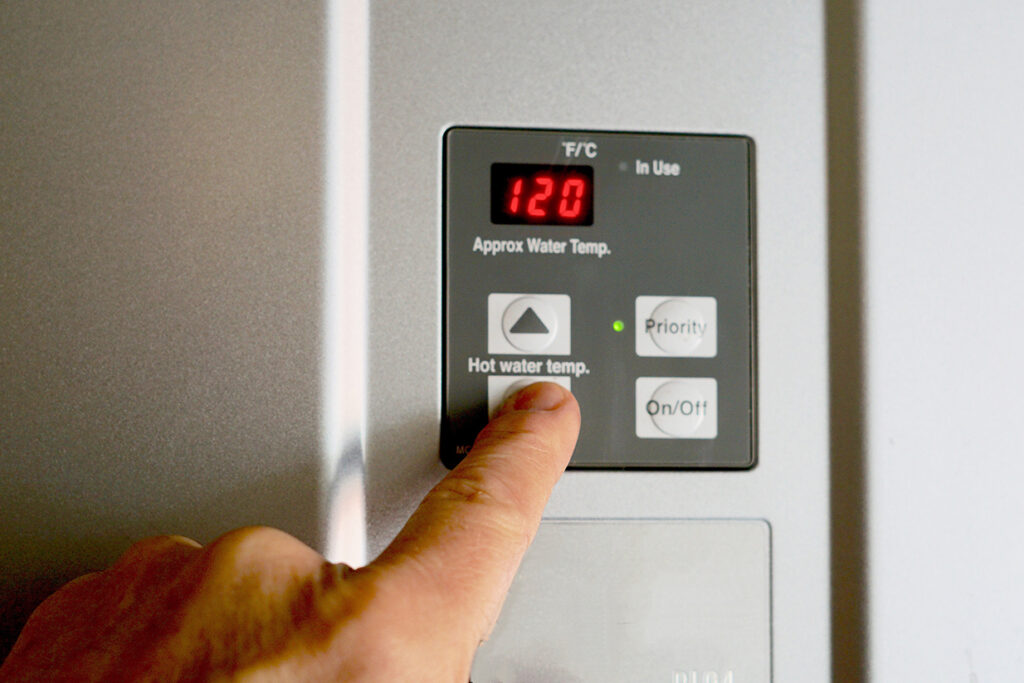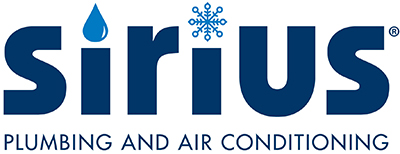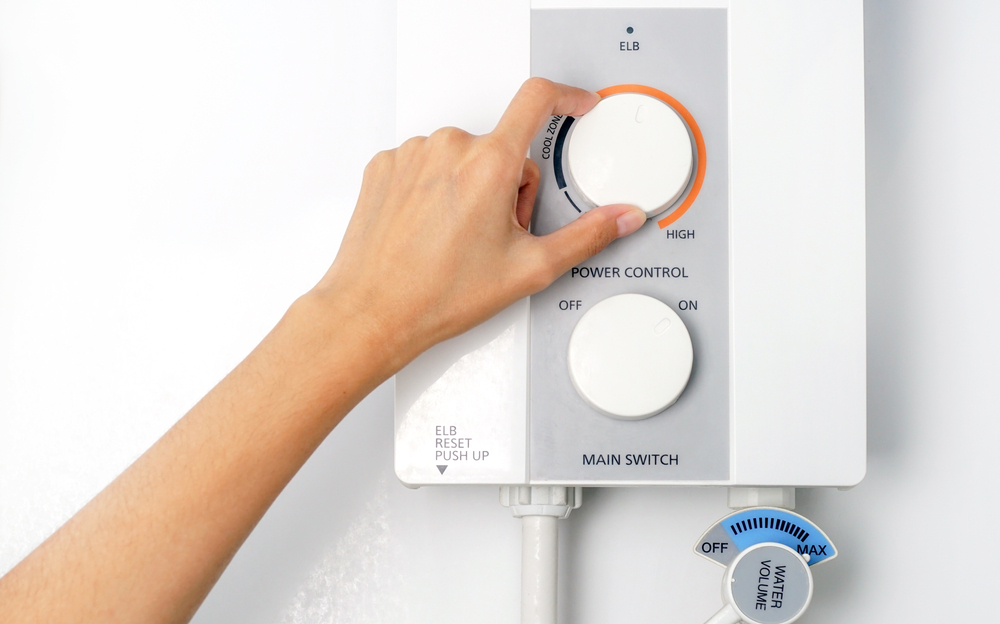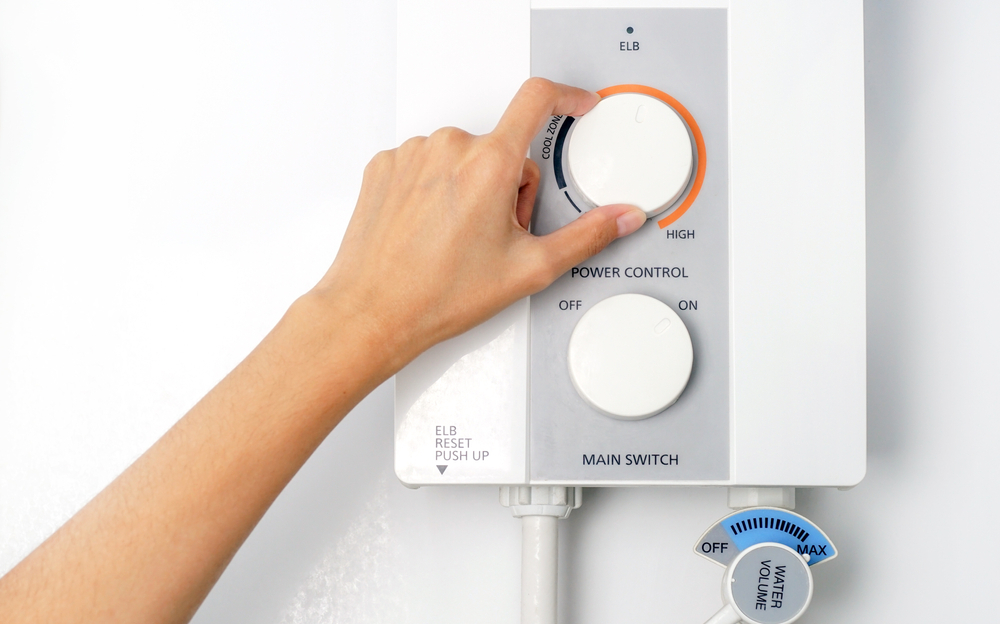There’s no doubt about it; tankless water heaters are becoming more popular in homes every day. Running out of hot water will never be a problem with a compact, ultra-efficient tankless water heater that heats water as you need it.
With as many benefits as they come with, tankless water heaters can be a significant investment, so it’s important to be informed before you buy.
How Do Tankless Water Heaters Work?
Tankless water heaters use an electric element or gas burner to warm the water as it travels through the unit. This design means that the heater is only heating the water that you are signaling you need through your faucets and showerheads.
Unlike traditional water heaters, the hot water is not stored in the tank, so there is far less waste and no risk of running out of hot water.
The Pros and Cons of Tankless Water Heaters
Tankless water heaters offer lots of benefits to homeowners in Carrollton, like energy efficiency and an unlimited hot water supply. However, they do come with some downsides, including upfront costs and sensitivity.
Pro: Space
Tankless water heaters are significantly smaller than traditional water heaters. They are compact and can fit in more spaces in your home, like in the attic. With conventional water heaters, the tank size can be a real problem and can leave you with only a couple of location options. This problem is solved with tankless water heaters.
Pro: Instant Hot Water
If you’ve used a traditional water heater, you know that it can take a while for the water to get warm. With a tankless water heater, once the cold water is flushed from the pipes, you’ll get hot water almost instantly. Not only does this save you time, but it saves a significant amount of water.
Pro: Lifespan
A major advantage of tankless units is their lifespan. The average tankless water heater will last 20 years. Compare this to a high-quality traditional water heater which only lasts about 10.
While it can be tempting to save costs upfront by installing a traditional heater, you should seriously consider the long-term savings that come with the long lifespan of a tankless heater.
Pro: Energy Efficiency
Old water heaters are not known for efficiency. In fact, they can be downright wasteful.
Traditional heaters fill up a large tank with water then use energy 24/7 to make sure you have hot water on demand. Because tankless water heaters heat on demand, they are as much as 25% more efficient than standard models. Not only is the energy efficiency more environmentally friendly, but it will result in savings in your monthly energy bill.
Pro: Safety
If a traditional water heater leaks, it will spill gallons of water which can easily flood a basement. Tankless water heaters are less prone to leaks, and there is far less water when they do happen.
Additionally, tankless water heaters are installed with the air supply and exhaust vents sealed. This approach means that carbon monoxide can’t leak into your house, a safety feature that you won’t have with traditional water heaters.
Pro: Easy to Winterize
If you are the owner of a vacation home in the Carrollton area, a tankless water heater can offer significant convenience when it comes to winterizing your home. It takes a big-time investment to drain a traditional water heater before locking up for the winter. With a tankless water heater, you can drain it in just a few seconds, then unplug it.
Con: Trouble Keeping Up
Tankless water heaters can supply an unlimited stream of hot water to a faucet, but they may have trouble keeping up with multiple hot water demands at once. For example, if someone in the home is running the dishwasher while another is taking a shower, a tankless water heater may have trouble keeping up.
Compare this with a traditional water heater that can store up to 80 gallons of hot water at once and easily provide hot water to multiple outlets.
Con: Ongoing Maintenance
While any water heating system will require maintenance, tankless water heaters often require slightly more maintenance than a traditional hot water system. To keep the manufacturer warranty valid, homeowners should perform annual maintenance and, in some cases, may be required to install a water softener.
It is also a good idea for owners to flush out their systems every year. Flushing the system prevents mineral build-up in the water line or the heater itself. There are costs associated with this maintenance, so it is something to factor into your overall budget.
Con: Higher Upfront Cost
No matter what water heating system you choose, the installation process can be a significant investment in your home. Tankless water heaters are almost always more expensive than traditional systems.
Additionally, the labor required to install tankless water heaters is also higher than for traditional systems. While the energy savings and longer lifespan usually offset these costs, the upfront expense is certainly something to consider.
Con: Inconsistent Temperatures
Even though traditional water heaters are inefficient, they are consistent. You can expect the same temperature every time you adjust your faucet to the same setting. Tankless water heaters have historically not had the same performance when it comes to consistency.
Consumers have complained about inconsistent water temperatures, which is likely the result of the limitations of sending hot water to multiple locations.
Another thing to be aware of is the tankless water heater may not always come on if enough water isn’t flowing. For example, if the faucet is only slightly open, the tankless water heater may not start heating the water, so the water will never warm up.
Conclusion
Each homeowner’s situation is different, and a tankless water heater may make more sense for some families than others. Before making this investment, make sure you consider all of the factors to make the right decision for you.
If you are ready to move forward with your tankless water heater installation in Carrollton, trust Sirius Plumbing and Air Conditioning. We have over two decades of experience in the industry, and we treat our customers like family. Contact us today.



